|
|
|
Книги John E. Bowlt

|
Assembled during the last twenty years, the Jose Maria Castane collection of paintings, drawings, and prints constitutes a panorama of late nineteenth and early twentieth century Russian art, one of the most exciting moments of modern cultural history. Unlike other representations in the West, however, the Castane collection does not focus exclusively on the avant-garde, Socialist Realism or the dissident movement, but, instead, offers a broader and sometimes alternative enquiry into the history of the Russian visual arts, acquainting us with often unfamiliar works by luminaries such as Leon Bakst, Aleksandr Deineka, and Liubov Popova as well as with less celebrated names such as Aleksandr Chirkov, Nikolai Lapshin, and Aleksandr Venedernikov. With full curatorial descriptions, biographies, critical essays, and artists statements (for the most part, published for the first time in English), Of Peace and War pays homage to the initiative and foresight of a private collector and to the purposefulness and enthusiasm which molded the selection. |

|
This book is devoted to the complex relationship between Russian art and the East — be it the Russian East or the Far East — with special focus on the radical artists who shaped the development of modern art a century ago. The rituals of Siberian shamans, the ancient funerary sculptures from the steppes seen as a crystallized presence of archaic and everlasting forms of worship, Chinese popular prints, Japanese engravings, Theosophic and Anthroposophic theories, and Indian philosophy are but some of the elements that inspired the aesthetic and theoretical pursuits of the new generation of Russian artists and writers just before the October 1917 Revolution. This book examines figures such as Leon Bakst, Alexandre Benois, Pavel Filonov, Natalia Goncharova, Wassily Kandinsky, Mikhail Larionov, and Kazimir Malevich, who were deeply aware of the significance of the East for their art, and contributed to launching a rich debate that left a deep and permanent mark on their artistic praxis. |

|
The twilight of Imperial Russia witnessed a sudden renaissance of the visual, literary and performing arts: here was a Silver Age as luminous perhaps as the Golden Age of Russian literature many decades before. Much of this new flowering was indebted to the set of ideas known as Symbolism, which fell on fertile soil in Russia. The Russian Symbolists lived and created on the edge, which often made them to be named 'Decadent' or 'Degenerate'. Yet, as Sergei Diaghilev declared, theirs was not a moral or artistic decline, but a voyage of inner discovery and a refurbishing of a national culture. A dazzling array of artists, writers, composers, actors, singers, dancers and designers are presented here in context, including Tolstoy, Pasternak, Gorky, Akhmatova, Rimsky-Korsakov, Rachmaninov, Nijinsky, Scriabin, Karsavina, Meyerhold, Chaliapin, Stanislavsky, Diaghilev, Roerich, Repin, Serov, Somov, Vrubel, Bakst, Kandinsky, Malevich, Mayakovsky and many more. The book includes a rich repertoire of artworks and vintage documentary photographs, many of which have not been published before. With a clear narrative and comprehensive bibliography, this volume will appeal both to the specialist and to the general student of Russian history and culture. |
|